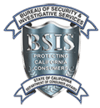5 Signs You May Be a Victim of Digital Stalking – And What to Do Next
We live in an increasingly hyperconnected world where we rely on smartphones, laptops, apps, and social media to manage nearly every aspect of our lives, from communicating with loved ones and navigating commutes to banking and working remotely. But this level of digital access comes with a hidden risk: digital stalking. More and more individuals are finding themselves the targets of unwanted monitoring, tracking, and harassment through their devices. Often, this happens without their knowledge.
At Kinsey Investigations, we’ve seen a steady increase in cases involving cyberstalking, GPS tracking, and unauthorized digital surveillance – many involving someone the victim knows personally. In fact, the most common digital stalkers aren’t strangers but ex-partners, spouses, coworkers, or acquaintances who exploit technology to invade your privacy. In some cases, they may even use spyware or hidden GPS devices to monitor your movements and access your personal information.
What makes digital stalking especially insidious is its invisibility. You may have a feeling something is wrong – like strange behavior from someone in your life, or your private conversations suddenly becoming public – but can’t quite put your finger on what’s happening. That uncertainty can be paralyzing.
This blog post outlines five key signs that may indicate you’re being digitally stalked, and explains the next steps you should take to protect yourself and regain your sense of safety. As a trusted, woman-owned private investigation agency in Los Angeles, Kinsey Investigations is here to help with compassion, discretion, and real solutions tailored to your situation.
If you suspect something is off, trust your instincts. Digital stalking is a serious matter, and you don’t have to deal with it alone.

1. Unusual Device Behavior
One of the earliest signs of digital stalking can appear right in the palm of your hand. If your phone or computer is acting strange – freezing, overheating, or draining its battery unusually fast – it could be a red flag. Spyware and tracking apps often run silently in the background, consuming resources and compromising device performance.
Be alert if:
- Apps appear that you didn’t install.
- Your phone lights up for no reason.
- You hear odd background noises during calls.
- Your data usage spikes suddenly.
These could all point to unauthorized software or remote access tools installed by someone trying to track your activity.
2. Someone Knows Too Much About Your Life
Does someone seem to know where you’ve been, who you’ve talked to, or what you’ve said in private – when you never told them? It could be more than coincidence.
This is especially concerning when the person:
- Repeats back private details you only discussed via text, phone, or email.
- Shows up unexpectedly at locations you visit frequently.
- References your recent online activity or search history.
In many cases, this indicates they may have access to your personal messages, calendar, or location data. Some individuals even install GPS tracking devices on vehicles or hidden cameras in homes without consent.
3. Your Accounts Have Been Compromised
Digital stalkers often gain control over email, social media, or cloud accounts to monitor and manipulate you. If you notice strange activity on your accounts, don’t ignore it.
Watch for:
- Password reset emails you didn’t request.
- Login attempts from unknown devices or locations.
- Friends receiving messages you didn’t send.
- Emails or files missing or mysteriously moved.
If someone has guessed or stolen your login credentials, they could be using your digital identity to track you or gather private information.
4. You’re Being Harassed Online or Through Text
Cyberstalkers sometimes escalate to sending threatening, harassing, or manipulative messages. These may come from real accounts or fake ones created to intimidate you anonymously. Some may impersonate others to confuse or isolate you.
Examples include:
- Repeated, unwanted messages despite requests to stop.
- Anonymous harassment or social media impersonation.
- Doxxing (publishing your private info online).
- Monitoring and commenting on your every post or interaction.
Even if the communication seems “subtle” or passive-aggressive, it can be part of a pattern of digital intimidation.
5. You Feel Constantly Watched or Unsafe
Sometimes, the most telling sign is emotional. Victims of digital stalking often describe feeling “paranoid” or constantly on edge, even if they can’t pinpoint why. These feelings are valid – and they could be signaling that your privacy has been breached.
You may find yourself:
- Avoiding certain places or people.
- Double-checking locks and turning off devices.
- Feeling anxious using your own phone or computer.
- Isolating yourself to avoid further attention.
If your gut is telling you something’s wrong, it’s time to take action.
What to Do Next

If you recognize any of these signs, don’t panic, but don’t ignore them either. Taking quick, smart steps can help you protect yourself and regain control.
1. Secure Your Devices
- Run antivirus and anti-spyware scans.
- Perform a factory reset on phones if necessary.
- Update software and change all passwords using a secure device.
- Enable two-factor authentication on all accounts.
If you’re unsure how to do this safely, Kinsey Investigations can help you connect with trusted cybersecurity professionals.
2. Avoid Confronting the Suspect Directly
While you may be tempted to confront the person you suspect, doing so can escalate the situation or alert them that you’re aware of their actions. Instead, start documenting everything and seek professional help.
3. Work with a Licensed Private Investigator
At Kinsey Investigations, we’re trained to detect digital stalking tactics – and to help you collect legal evidence. We can:
- Sweep your car or home for hidden GPS trackers and cameras.
- Conduct digital forensics on compromised devices.
- Identify stalkers operating through anonymous accounts.
- Work discreetly alongside law enforcement or attorneys.
As a woman-owned firm, we bring empathy and discretion to emotionally charged situations, especially when the stalker is a current or former partner.
4. Report the Behavior to Authorities
In California, digital stalking and cyber harassment are crimes. Once you have documentation and professional findings, we can assist you in filing a police report or seeking a restraining order. If the stalker violates state or federal laws (such as the Electronic Communications Privacy Act), they can be held accountable.
Why Trust Kinsey Investigations?
Digital stalking is a violation of your safety and freedom. At Kinsey Investigations, we believe everyone deserves to live without fear of being watched, tracked, or manipulated. If you suspect you’re being digitally stalked, let us help you uncover the truth—and take back control of your life.
Contact Kinsey Investigations today for a free, confidential consultation. Together, we’ll create a plan that puts your privacy and peace of mind first.

























